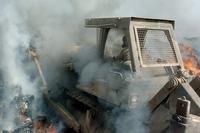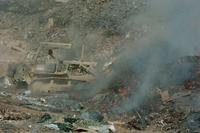Veterans experience insomnia at "alarmingly high" rates, according to a recent study from the Department of Veterans Affairs in San Diego.
The rate, the study found, was especially high among veterans suffering from Post-Traumatic Stress Disorder (PTSD), Traumatic Brain Injury (TBI), and chronic pain.
The report, which was first published in the Oxford University medical journal "Sleep" in June, found that in a seven-year long study of over 5,500 Post-9/11 veterans, 57% of them had insomnia disorder. This rate was fairly consistent regardless of age, sex, race and military branch. The number of deployments, length of service or history of alcohol abuse did not affect the risk of insomnia.
By way of comparison, studies of the general adult population show an insomnia prevalence of around 30%.
Insomnia rates were even higher in veterans with certain conditions. More than 93% of veterans with PTSD, about 78% with TBI and 70% with chronic pain also had insomnia disorder.
Insomnia is defined as difficulty falling or staying asleep, waking up earlier than desired, or significant sleep-related problems during the daytime.
Doctors have long known that veterans frequently have sleep problems. Past research has suggested that they may have double or even triple the rates of insomnia, compared to civilians. This could stem from several aspects of military life, including irregular sleep schedules during active duty and harsh living conditions. Physical and psychological injury and post-deployment trouble reintegrating into civilian life may also play a part.
The researchers were surprised by the results of the study because a review of VA medical records showed that only 3% of all veterans enrolled in VA healthcare report sleep related problems, a big difference from the study’s results.
Researchers involved in the study gave several reasons for this discrepancy.
First, medical professionals at the VA often regard insomnia as a symptom of other issues like PTSD, TBI or chronic pain, and many medical professionals do not even list insomnia as a separate diagnosis in a patient's health record.
Also, veterans themselves often do not report sleep issues to their care team as a problem. These veterans may have been dealing with sleep related issues for many years or since their first day of boot camp, and often regard insomnia itself as normal or trivial, the researchers said in the report.
While many veterans think insomnia is no big deal, and remember times during their military service where they pulled double-duty and then still managed to go out on the town, medical professionals warn that insomnia can have severe complications, especially as we age.
There are several medical complications of insomnia including:
- Increased risk of death
- A higher risk of health problems like high blood pressure, obesity, and depression
- A higher risk of falling, especially for older women
- Emotional issues like mood disorders, anxiety, trouble focusing
- Slow reaction time and reduced physical functioning
The results from the study reveal VA's need to develop more sleep-issue related screening and raise awareness among veterans of the seriousness of the issue and the need to treat it at the first available opportunity, researchers said.
Stay on Top of Your Military Benefits
Not sure what your veteran health care benefits are? Keep up with all the changes and details. Subscribe to Military.com. and get all the latest updates straight to your inbox.












